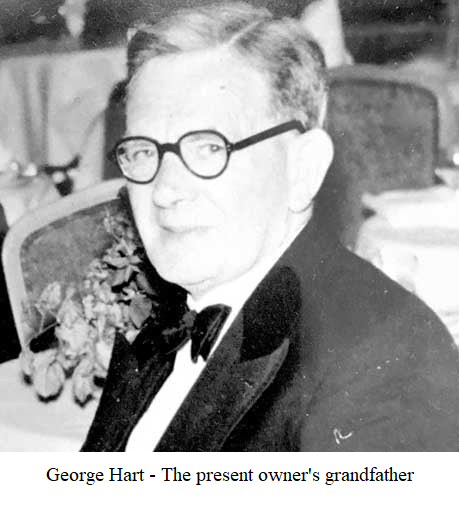Growth, Trends & Collector Insights
Vintage jewellery is no longer niche. In 2025, more buyers see antique and vintage pieces as wearable art, long-term keepsakes, and a more sustainable alternative to newly-mined materials. Below, we unpack market context, regional dynamics, investment drivers, and collector behaviour and share how to buy with confidence.
1) Market Context: Where Vintage Sits in the Wider Jewellery Landscape
The global jewellery category remains substantial and resilient, with the pre-owned / vintage segment growing faster than new retail. What sets vintage apart is authenticity, craftsmanship, and the supply constraint of true period pieces. This environment favours trusted dealers who can evidence provenance, period attribution, and accurate gemmological descriptions.
- Why collectors choose vintage: design heritage, rarity, original hand-finishing, and re-use (sustainability).
- What they look for: period correctness (Georgian, Victorian, Edwardian, Art Nouveau, Art Deco), quality of materials, condition, originality, and documentation.

2) Regional Dynamics at a Glance
UK & Europe
A mature ecosystem of dealers, auction houses and museums sustains strong demand for period jewellery. In the UK, NAJ guidance and hallmarking standards support buyer confidence.
North America
High-value auctions and a deep collector base drive liquidity for signed pieces and best-in-class examples. Online platforms have broadened access to authenticated vintage.
Asia-Pacific
Growing wealth hubs (e.g., Singapore, Hong Kong, Japan) show increasing interest in western heritage jewellery, especially iconic eras and signed makers.
3) What Drives Value in Antique & Vintage Jewellery
- Rarity & Era: Distinctive period designs (e.g., Georgian closed-back foiling; Edwardian platinum filigree; Art Deco geometry).
- Maker & Design: Signed pieces and recognised workshops; design coherence to the era.
- Materials: Platinum, high-carat gold, untreated coloured gemstones (sapphires, rubies, emeralds).
- Condition & Integrity: Sympathetic restoration that preserves originality and structure.
- Provenance & Documentation: Prior ownership, archival references, period catalogues, and credible certificates.
4) How to Buy with Confidence
- Look for membership of recognised bodies (e.g., NAJ) and ask about internal gemmological protocols.
- Request documentation: period attribution notes, gemstone testing results, any restoration details.
- Look for authentic period details and craftsmanship cues: match stamps to era and origin using reputable references.
- Compare similar pieces in museum catalogues or auction archives to benchmark style and expected features.
5) Collector Behaviour & Channels
Buyers increasingly research online, cross-checking hallmarks, auction records and museum references. Transparent listings with crisp macro photography, dimensional data, and honest condition notes perform best. For many, the ideal journey blends online discovery with dealer expertise and secure, insured shipping.
6) Why Provenance & Storytelling Matter
Beyond the intrinsic value of metals and gems, a piece’s story adds cultural and emotional worth. Period-correct design elements, original settings, and any traceable ownership history meaningfully influence long-term desirability.
Expert Insight (Vintage Tom)
“When assessing a piece’s true worth, originality and provenance matter as much as carat weight. Our role is to protect that history while ensuring the piece is ready to be worn and loved.”
— CG Hart, fifth-generation jeweller, NAJ member
Explore further: Vintage Engagement Rings · Sapphire & Diamond Rings · Diamond Cluster Rings · Sell Your Jewellery
Sources & Further Reading
To help readers verify information and go deeper, we recommend these reputable references:
- Gemological Institute of America (GIA) — gemstone education, grading standards, treatment guidance.
- National Association of Jewellers (NAJ) — UK trade body, codes of practice, buyer guidance.
- V&A Museum, Jewellery Collection — period exemplars, design features by era.
- British Museum, Jewellery — historical context and materials.
- Christie’s Jewellery & Sotheby’s Jewelry — auction archives for provenance and benchmarks.
- Statista: Jewellery market overview — market context (use headline stats as available).
- McKinsey: State of Fashion — Watches & Jewellery — pre-owned & authenticated resale trends.
About the Author
Charles Hart Jewellers are a fifth-generation jeweller at Vintage Tom / Charles Hart Jewellers in Frome, Somerset (est. 1820). A member of the National Association of Jewellers, they specialise in period attribution, gemstone evaluation, and sympathetic restoration of antique and vintage jewellery.



